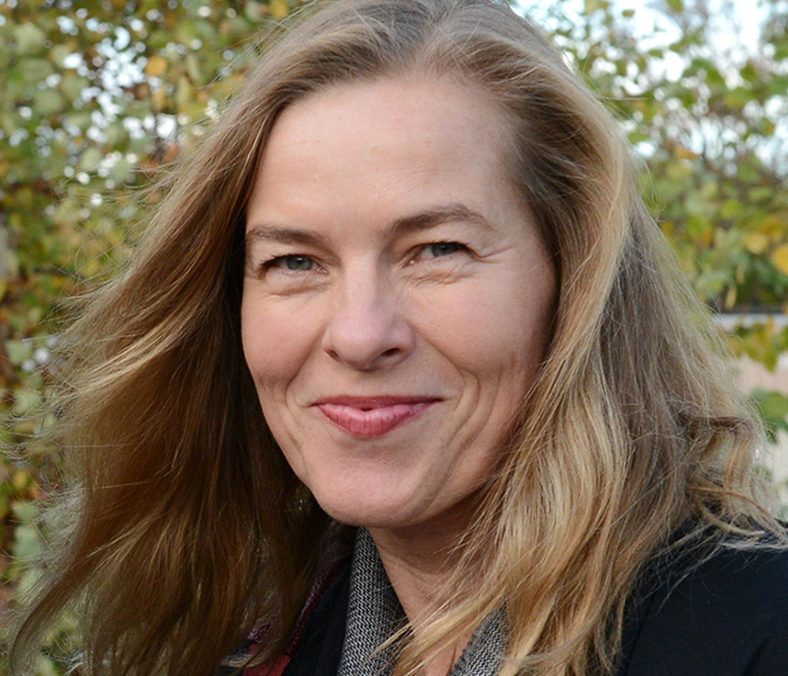Wednesday, Nov 15, 2017
Dr. Barbara Franz is an expert on the topics of immigration and refugees
by Robert Leitner ’17
Dr. Barbara Franz, a professor of political science, traveled to Lithuania this summer on her first Fulbright scholarship. An expert on the topics of immigration and refugee studies, she used her experience to witness and make recommendations on improving the country’s refugee integration process.
Lithuania, as part of the European Union, is required to accept a certain number of refugees, a majority of whom are currently Syrian. Franz’s trip was scheduled to familiarize her with the Lithuanian culture and to advise local Non-Government Organizations (NGOs) and municipal administrators on integration methods. Her itinerary included university lectures, a refugee camp visit and meetings at local municipalities and the U.S. Embassy, all of which helped her understand how refugee integration is taking place in Lithuania.
“This Fulbright positioned me as a country specialist in immigration,” Franz says. “The refugee situation in Lithuania is difficult because of certain aspects of the Lithuanian culture as well as the requirements set by the European Union. In terms of how advanced the integration process is itself, Lithuania can be ranked in the middle when compared to other Baltic states. However, the refugees there are very isolated and, after they spend half a year in a refugee camp on the countryside, the refugees have to rely upon themselves in terms of finding jobs and housing.”
Franz, who received her doctorate in international relations and masters’ degrees in history and international relations from Syracuse University, has spent a large part of her scholarly career focusing on refugee and immigration integration, studying also how the influx of refugees and immigrants effects the receiving country. She has written two books and many articles related to these topics, which have appeared in esteemed social science journals.
At Rider, Franz uses her expertise in both introductory courses on politics and a variety of upper-level courses on global issues and politics. She also uses her passion for international politics to inspire students acting as delegates on Rider’s Model United Nation (UN) team. As the faculty advisor of Rider’s Model UN team, Franz sets high expectations for the group, and they continue to succeed in the international simulation, competing with more than 6,500 students. Rider’s Model UN team has won the top award of Outstanding Delegation eight of the last nine competitions.
Franz's Fulbright experience was organized by the International Organization for Migration, an inter-governmental organization dedicated to promoting humane and orderly migration for the benefit of all.
In Lithuania, Franz observed that some university students firmly opposed immigration. On the other hand, students from Syria, visiting on visas, displayed a great hunger to perform humanitarian acts.
“The Syrian students were in Lithuania on three-month visiting visas,” Franz says. “They were very polite, curious and grateful. Almost all of them had humungous dreams of doing something humanitarian. Some wanted to be doctors or become engineers to rebuild Syria. They all wanted to go back and help rebuild what was destroyed, so it was very touching.”
In addition to students, Franz was able to observe refugee camp where Syrians, who had fled their homeland, were living. “The camp looked very nice, sort of similar to an old school," Franz says. "Each family had a sleeping and kitchen arrangement, and every family used the communal bathroom in the hallway. They had lecture halls for their courses, and after their six months of instructional integration and language learning in the camp were up, it was assumed that these refugees would be able to find a job and housing somewhere in the country. Of course, this was not the case because of the country’s pretty tough barriers of racism and Islamophobia. So, most of these refugees left the country again to resettle somewhere in Germany or elsewhere in the EU.”
After her visits to universities, the refugee camp and other places, Franz had a number of roundtable meetings with NGOs, municipal politicians and social workers, and she was able to share her perspective on the most effective ways to ensure a positive outcome of the refugee situation.
“I was asked what I thought the best solution was in various ways at these meetings,” Franz says. “What I emphasized was the importance of educating the receiving society. Without them, it is going to be impossible to integrate newcomers. What is needed is a willingness of the Lithuanian population to take a step toward opening their hearts and lives to these newcomers. As long as fear and hatred of the refugee outsiders prevail in the society, the refugees will not make their new homes in Lithuania.”

